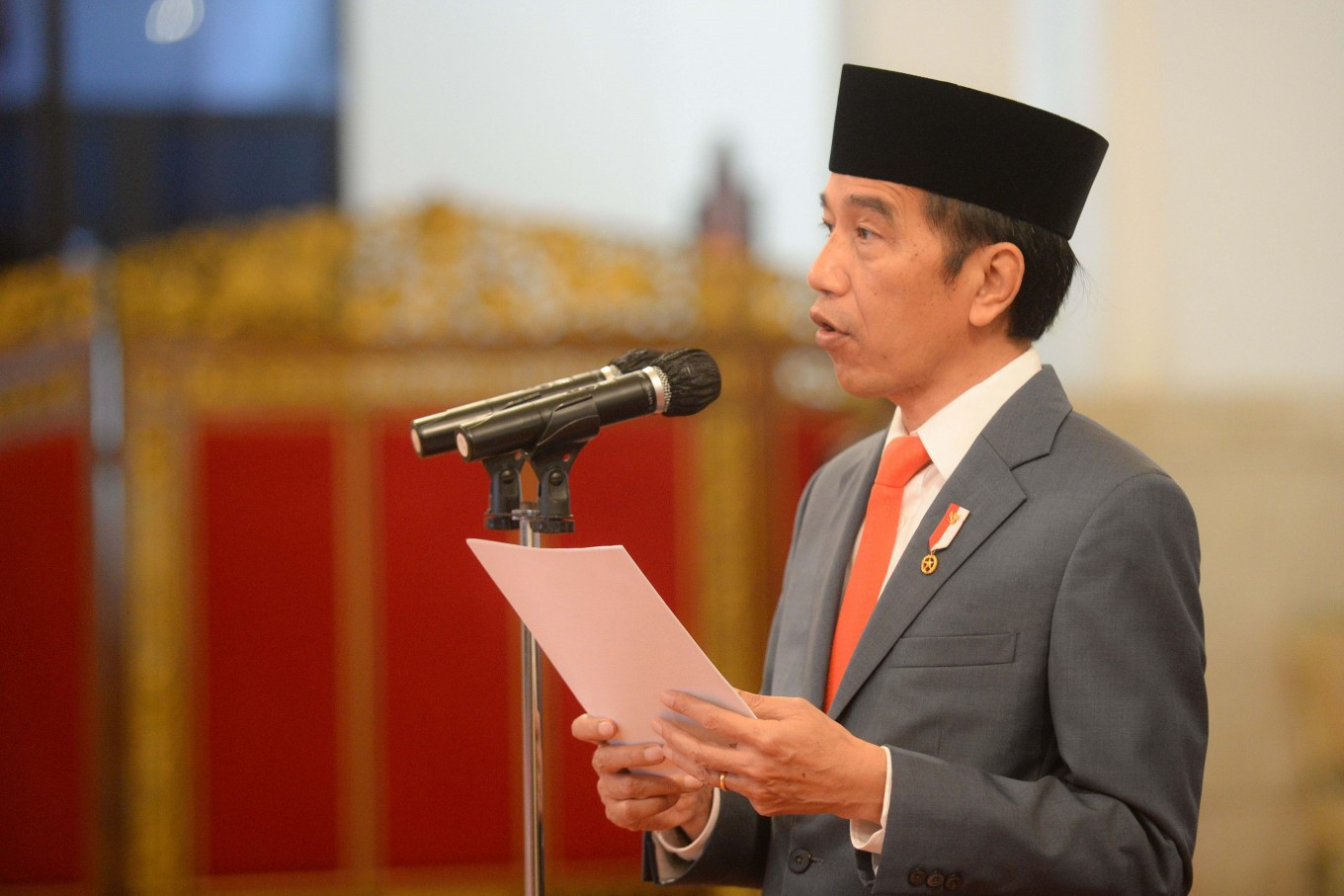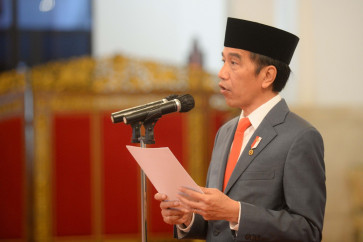Popular Reads
Top Results
Can't find what you're looking for?
View all search resultsPopular Reads
Top Results
Can't find what you're looking for?
View all search resultsAnalysis: Jokowi urges SOEs, INA to enter Masela gas block to jumpstart project
Change text size
Gift Premium Articles
to Anyone
 President Joko Widodo addressed on the 74th anniversary of Bhayangkara at the State Palace, Jakarta, Wednesday (1/7/2020). Commemoration of the 74th Bhayangkara Anniversary with the theme Conducive Kamtibmas Increasingly Productive Communities was carried out simply because of the Covid-19 pandemic situation. The ceremony was held virtually and was attended by a number of Polda and Polres across the archipelago. (JP/Wawan H Prabowo)
President Joko Widodo addressed on the 74th anniversary of Bhayangkara at the State Palace, Jakarta, Wednesday (1/7/2020). Commemoration of the 74th Bhayangkara Anniversary with the theme Conducive Kamtibmas Increasingly Productive Communities was carried out simply because of the Covid-19 pandemic situation. The ceremony was held virtually and was attended by a number of Polda and Polres across the archipelago. (JP/Wawan H Prabowo)
P
resident Joko “Jokowi” Widodo has urged state-owned enterprises (SOEs) and the Indonesia Investment Authority (INA) to enter the huge but stalled Masela gas block in Maluku to jumpstart the US$20 billion project. Many, however, have questioned the motive behind the move.
The president’s move came after his visit to Japan in July, when he got a commitment from Japanese Prime Minister Fumio Kishida to provide financial support through the Japan Bank for International Cooperation (JBIC) for any Indonesian entity entering the project, by either acquiring stakes from the Inpex Corporation of Japan or from the departing Dutch oil and gas giant Shell.
The two leaders apparently agreed to revive the project, which has stalled since President Jokowi decided to turn the gas project into an onshore liquefied natural gas (LNG) platform in 2016, a complete change from the original offshore scheme. Jokowi said he changed the project from offshore to onshore to bring more benefits to local people in the relatively remote province of Maluku.
Following Jokowi’s call for state investment, Upstream Oil and Gas Special Regulatory Task Force (SKK Migas) head Dwi Soetijpto told Pertamina to review the company’s capability to buy a participating interest in the Masela block. Pertamina reluctantly complied, but experts warned that Pertamina was already financially overstretched because of other commitments. The company, for example, is still struggling to amass enough working capital for the Rokan oil and gas block.
Inpex and Shell had previously agreed to build an LNG facility with an annual capacity of 9.5 million tons in a cost-recovery contract worth around US$20 billion. Shell decided in 2020 to walk out of the project by selling its 35 percent stake at $2 billion. Inpex, the majority stakeholder with a 65 percent participating interest, was actually interested in buying the stake but considered the price tag too high. The fair price of the 35 percent shares is estimated at between $800 million and $1 billion.
The Japanese company, however, is reluctant to continue the project alone. Therefore, the offer came from Kishida for an Indonesian entity to take part in the project, whose total cost has been revised up several times. When it was planned as an offshore project, the project was set to cost about $15 billion, but when it was changed into an onshore project, the cost exploded to $18 billion and now $20 billion.
The costs will likely increase further as Inpex plans to include a carbon capture, utilization and storage (CCUS) facility to reduce the Abadi natural gas field project’s carbon dioxide emissions. The requirement to construct a CCUS facility would increase the cost of the Masela block, so SKK Migas has requested the reduction of the CCUS facility’s construction cost in order to maintain the economic value of the project.

















